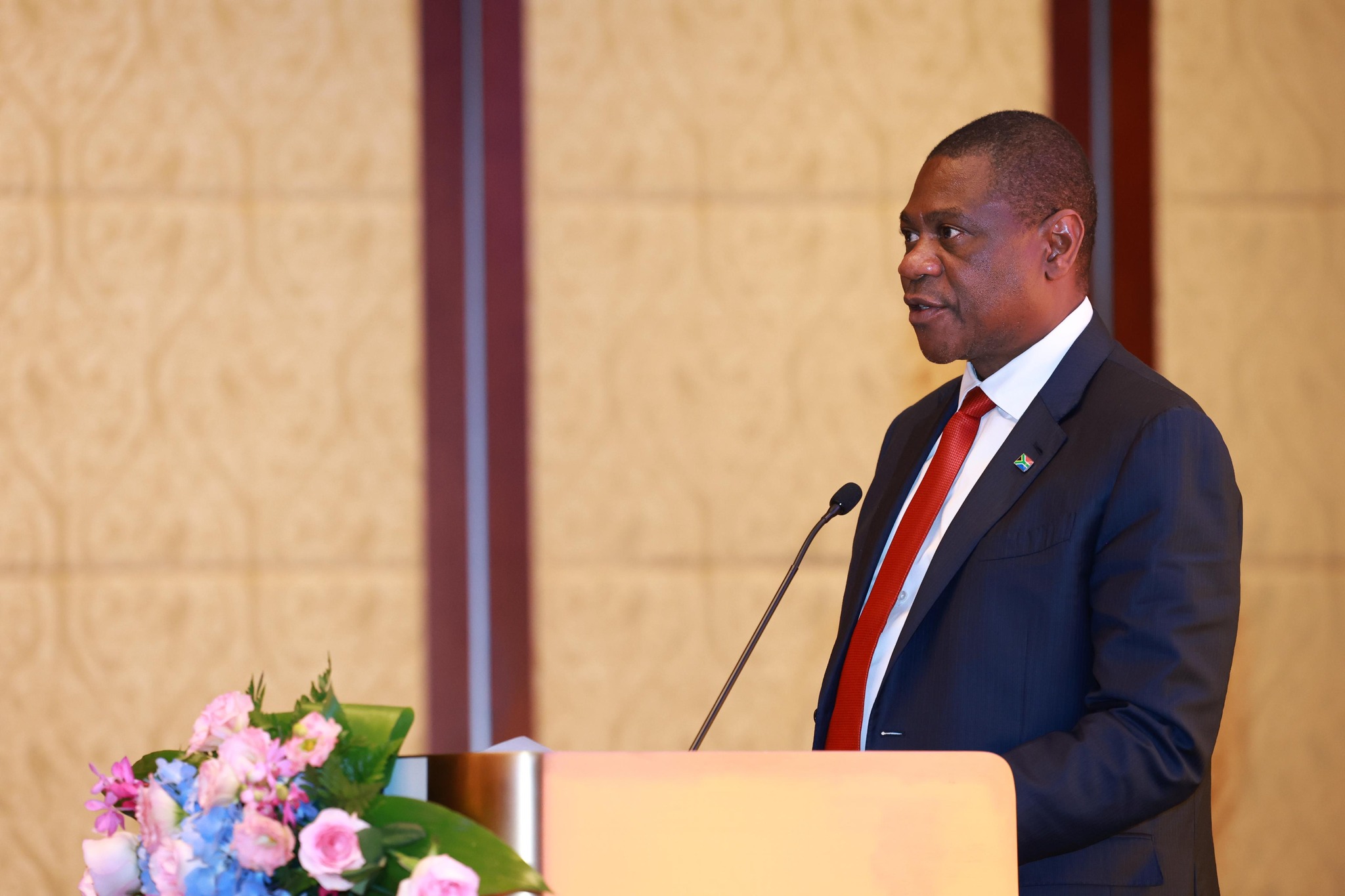NEDLAC’s 30th Summit Highlights Jobs Crisis and Path to Inclusive Growth
The summit took place in Sandton against the backdrop of a stubbornly high national unemployment rate of 33.2%, with women disproportionately affected at 35.9%.

- Country:
- South Africa
South Africa’s National Economic Development and Labour Council (NEDLAC) has marked its 30th Annual Summit, reflecting on three decades of social dialogue while confronting the country’s most pressing challenge: unemployment. The summit took place in Sandton against the backdrop of a stubbornly high national unemployment rate of 33.2%, with women disproportionately affected at 35.9%.
Mandela’s Warning Still Relevant
Delivering the keynote address virtually, Deputy President Paul Mashatile revisited a warning issued nearly three decades ago by former President Nelson Mandela. At the 4th NEDLAC Summit in the 1990s, Mandela had stressed that the greatest challenge facing the new democracy was job creation.
Mashatile said it was troubling that South Africa continues to grapple with the same challenge 26 years later, noting that the fragility of democratic gains remains evident without tangible improvements in people’s lives.
“Foremost among our challenges is job creation. It is concerning that, 26 years later, South Africa is still grappling with the same challenges as stated by former President Mandela,” Mashatile told delegates.
Threats to Jobs from Global Pressures
The Deputy President also highlighted external risks, including the 30% tariff recently imposed by the United States on South African exports. He warned that these tariffs could severely affect key sectors such as agriculture, automotive, manufacturing, and mining, potentially leading to significant job losses.
While acknowledging that NEDLAC itself does not directly create jobs, Mashatile underscored its role in creating an enabling environment through sector-specific interventions, SME support, skills development initiatives, and employment programmes.
Building a National Compact for the Future
Mashatile urged South Africans to unite around a shared vision for the future, saying the National Dialogue is central to healing divisions, addressing frustrations, and charting a new course for the economy.
He noted that by 2030, citizens should have reached consensus on the kind of South Africa they wish to build—one rooted in the ideals of the Freedom Charter, which envisioned a nation belonging to all its people, both Black and White.
“We must draw lessons from one another as we work to rejuvenate our economy, decrease unemployment, and foster inclusive growth,” Mashatile said.
Solidarity, Equality, and Sustainability
The Deputy President stressed that the journey toward a more inclusive economy would not be easy but is achievable with dedication, courage, and a commitment to collective goals. He called on all citizens to contribute to advancing inclusive economic growth and social equity, while dismantling systemic barriers that continue to sustain discrimination and exclusion.
Mashatile expressed confidence that the NEDLAC 30-Year Project, which reviewed progress since 1994, would help accelerate government programmes through concrete proposals to expand opportunities and address inequalities.
NEDLAC’s Contributions Over Three Decades
Over the past 30 years, NEDLAC’s work has led to several transformative outcomes, including:
-
Amendments to labour law to protect workers’ rights.
-
The establishment of the Presidential Employment Stimulus, which has provided temporary work opportunities for hundreds of thousands.
-
The revised Employment Equity Act, designed to tackle workplace inequalities and broaden representation.
These efforts reflect NEDLAC’s continued role as a platform for government, labour, business, and community organisations to collaborate on socio-economic solutions.
Linking National Priorities with Global Engagement
Mashatile also linked South Africa’s domestic challenges with its international leadership role as chair of the G20 Presidency (2024–2025). He said that through G20 engagement groups, South Africa was strengthening international cooperation on issues such as inequality, sustainable growth, and job creation.
“Through solidarity, equality, and sustainability, we can build an economy that reflects the aspirations of all South Africans,” Mashatile concluded.
Looking Ahead
As the summit wrapped up, the call for a collective national effort was clear. The unemployment crisis remains a central obstacle to growth and social stability, but with social dialogue, policy reform, and international cooperation, NEDLAC and its partners aim to chart a course toward a more inclusive and sustainable economy.










